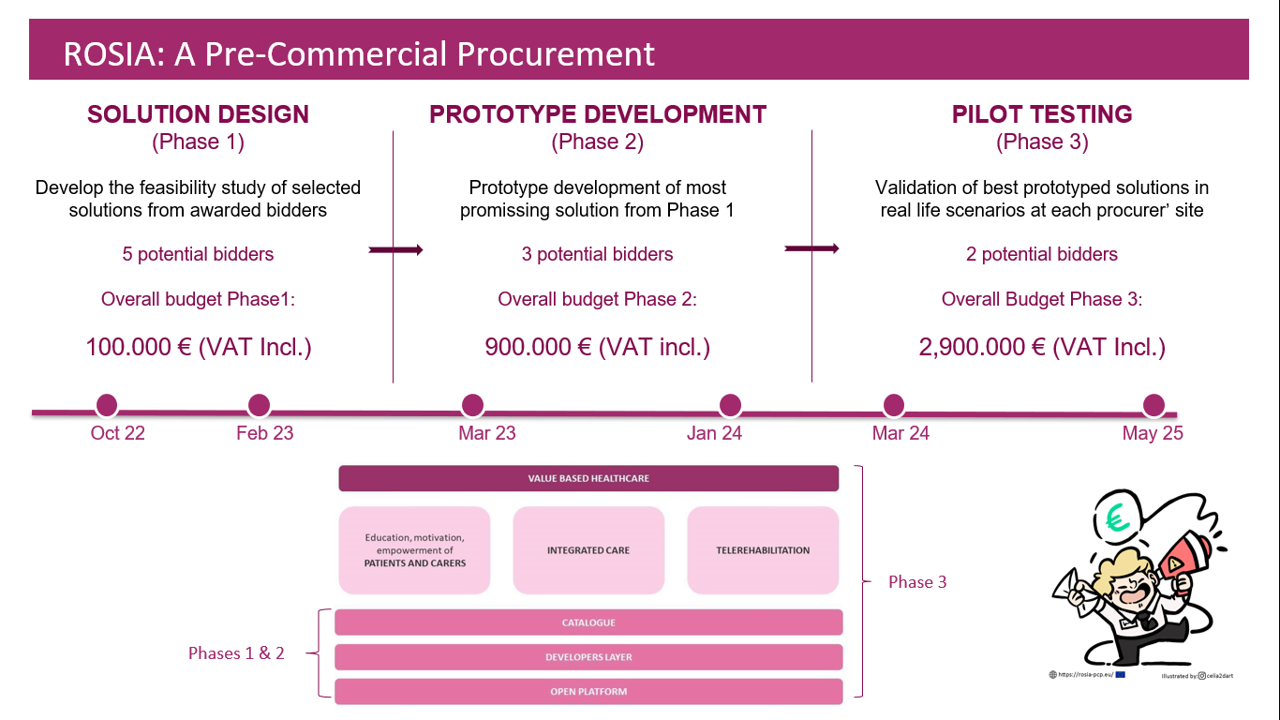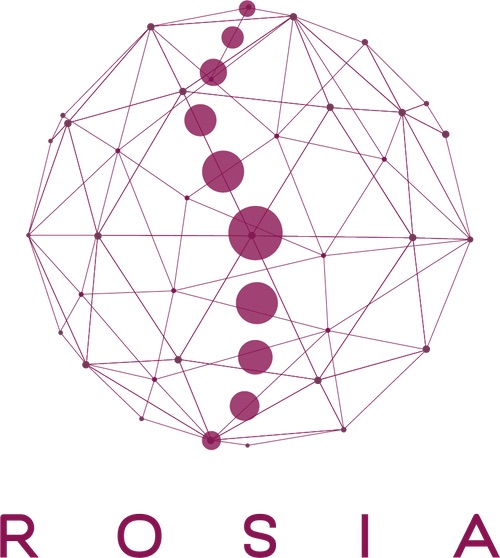Servicio Aragonés de Salud announces launch of €3.9m call for tenders for European PCP project ROSIA.

– The call for tenders will remain open from 31 March to 30 June.
– The project aims to develop an innovation ecosystem that enables the integration of public health services with patient self-care tools, community services and innovative telerehabilitation products.
– The €3.9M investment will be distributed along the three stages of the project: Design, Development and Pilot.
Zaragoza, 31 March 2022. The call for tenders for Pre-Commercial Procurement (PCP) project ROSIA (Remote Rehabilitation for Isolated Areas) opened 31 March 2022. The project is co-funded by the European Union’s H2020 research and innovation programme and uses a PCP instrument to procure the R&D services required by its buyers group – Servicio Aragonés de Salud (Spain), National Rehabilitation Hospital (Ireland) and Centro Hospitalar e Universitário de Coimbra (Portugal). A PCP promotes co-creation and competitiveness among international industry to provide R&D not yet available in the market.
The R&D required by the members of ROSIA’s buyers group is for the development of an innovation ecosystem that can support innovative solutions towards implementing telerehabilitation services that integrate professionals, patients and devices. The project is led by the Aragon Health Sciences Institute (IACS), who execute the joint procurement on behalf of the buyers group.
Companies wishing to bid have until 30 June 2022 to submit their bids. Due to the broad scope of the call’s requirements, bidders will need to create consortia and bid jointly. There is a matchmaking tool available for this purpose on the project’s website.
The opening of envelopes is scheduled for 1 July and the final award for 19 October. Bidding consortia will enter a first competitive phase of design proposing an ecosystem model that engages technological, health and community trends. This phase will run from October 2022 to February 2023 and up to 5 successful bidders will be selected to participate in it. The total budget for this phase is €100,000 (including 21% VAT). Only three of these bidders will move on to the development phase, worth €900,000 (including 21% VAT) and to be carried out between March 2023 and January 2024, and only two bidding teams will move on to the subsequent pilot phase and will be able to implement, test and validate their proposal in the public health system, including clinical practice and the incorporation of tele-rehabilitation devices in a real environment. This last phase will last 14 months, between March 2024 and May 2025, and has been allocated €2,900,000 (including 21% VAT). The pilots will be implemented in Somontano and Teruel (Aragon, Spain), Penela and Soure (Coimbra, Portugal) and CHO Areas 6 and 7 (Ireland).
The results obtained and the lessons learned during the project will help the deployment of a platform of solutions for telerehabilitation that may be easily integrated in any health service in Europe. In the future, the applications and devices comprising a ROSIA Catalogue will be connected to this platform, allowing the integration of both community and supervised self-care services into the care plan of each patient. ROSIA’s model of integrated value-based care can also open the door to rethinking new business models and incentives for providers, improve equity in access to rehabilitation resources and contribute to improving the sustainability of these services.


